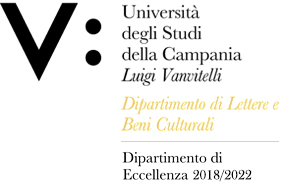Marcello LUPI
Insegnamento di STORIA GRECA:ECONOMIA, SOCIETA' E ISTITUZIONI
Corso di laurea magistrale in FILOLOGIA CLASSICA E MODERNA
SSD: L-ANT/02
CFU: 6,00
ORE PER UNITÀ DIDATTICA: 30,00
Periodo di Erogazione: Secondo Semestre
Italiano
| Lingua di insegnamento | Italiano. |
| Contenuti | L’insegnamento, che intende approfondire gli aspetti economici, sociali e istituzionali della storia greca, è costituito da tre seminari. I primi due saranno condotti dal docente ed incentrati su (1) l’emergere dell’endogamia civica nella Grecia arcaica e (2) la demografia ateniese di età classica. Il terzo seminario, che sarà sviluppato dagli studenti, avrà come tema “il tiranno e l’eroe”. |
| Testi di riferimento | (a) Le fonti antiche e la bibliografia relative ai due seminari condotti dal docente verranno fornite in formato elettronico entro il termine del corso. |
| Obiettivi formativi | L'insegnamento, coerentemente con i descrittori di Dublino, si propone di far acquisire agli studenti conoscenze avanzate della disciplina e la capacità di applicare le conoscenze acquisite. In particolare, gli studenti dovranno acquisire: la piena padronanza degli aspetti economici, sociali e istituzionali della storia greca; la capacità di utilizzare correttamente i documenti ai fini della ricostruzione storica, sapendo operare gli opportuni collegamenti fra essi; la capacità di esporre quanto appreso in una forma corretta ed organica, utilizzando il lessico specifico della disciplina; la capacità di argomentare in forma autonoma e corretta. |
| Prerequisiti | Conoscenze di storia, di storiografia e di epigrafia greca acquisite durante il corso di laurea triennale. |
| Metodologie didattiche | Lezioni frontali; lavoro seminariale; eventuale partecipazione a seminari o conferenze. |
| Metodi di valutazione | La verifica dell'apprendimento avverrà attraverso un esame orale, la cui valutazione terrà conto del livello delle conoscenze specifiche del candidato, della coerenza delle risposte, della correttezza linguistica. Il voto finale sarà calcolato nel seguente modo: |
| Altre informazioni | Il materiale didattico (fonti antiche e bibliografia moderna) relativo ai due seminari condotti dal docente sarà reso disponibile online entro il termine del corso attraverso il link “Materiale didattico” presente nella pagina web del docente sul sito del Dipartimento. |
English
| Teaching language | Italian. |
| Contents | The course, which aims at deepening the institutional, economic and social features of Greek history, consists of three seminars. The first two will be led by the teacher and focused on (1) the emergence of civic endogamy in archaic Greece and (2) the Athenian demography of the classical age. The third seminar, which will be developed by the students, will have as its theme "the tyrant and the hero". |
| Textbook and course materials | (a) Ancient sources and bibliography related to the two seminars led by the teacher will be provided in digital format by the end of the course. |
| Course objectives | The course, coherently with the Dublin descriptors, aims to provide students with advanced knowledge of the subject and the ability to apply the acquired knowledge. In particular, students will have to acquire: the full mastery of the economic, social and institutional features of the Greek history; the ability to correctly use documents for historical reconstruction purposes, knowing how to make the appropriate connections among them; the ability to expose what has been learned in a correct and coherent form, using the specific vocabulary of the subject; the ability to argue autonomously and correctly. |
| Prerequisites | Knowledge of Greek history, historiography and epigraphy acquired during the three-year degree course. |
| Teaching methods | Lectures; seminar work; possible participation in workshop or conferences. |
| Evaluation methods | The assessment will take place through an oral exam, whose evaluation takes into account the level of the student's specific knowledge, the coherence of the answers and the linguistic correctness. The final grade is assigned according to a numerical scale and considers the following criteria: |
| Other information | Digital materials (ancient sources and modern bibliography) related to the two seminars led by the teacher will be made available online by the end of the course itself through the link "Materiale digitale" on the teacher's webpage located within the Department website. |








